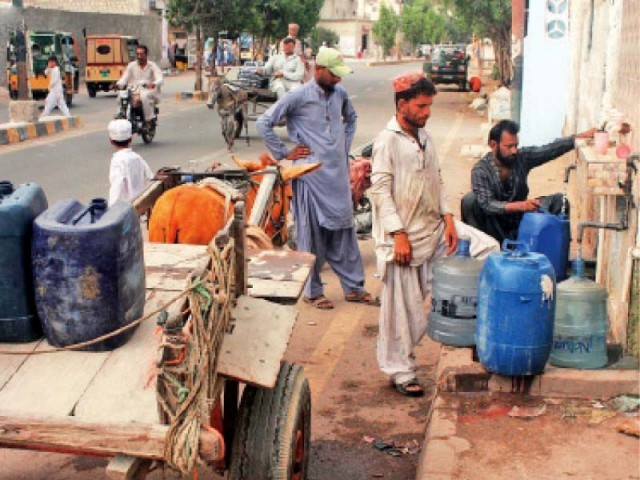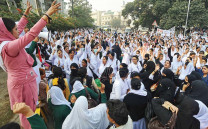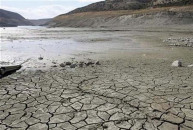Civic issue: Speakers dissect Karachi’s water woes
Shehri-CBE hosts session to analyse cause of water shortage in the city.

Shehri-CBE hosts session to analyse cause of water shortage in the city. PHOTO: ONLINE
She was speaking at a consultative session held on Friday by Shehri-CBE on water issues in Karachi in collaboration with the Friedrich Naumann Foundation.
"Hydrants should be phased out district wise. The people should have access to cheap piped water rather than relying on expensive hydrants," Alibhai stated.
Smart cities, according to her, are relying on water metering in accordance with land value. Karachi should introduce a similar system to improve the Karachi Water and Sewerage Board's (KWSB) financial condition by allowing people to pay a fair amount to the water board instead of commercial hydrants, said the general secretary.
Cracks in pipeline: Water supply suspended in Karachi
Whether it is the neighborhood industries, residences or high-rises, no one asks for water supply feasibility reports from the KWSB before getting a water connection, lamented Alibhai. "This needs to stop and a betterment tax should be paid to KWSB to improve the water supply network," she said.
The KWSB should forget about K-Electric (KE) and focus on self electricity generation, said engineer Pervez Sadiq, who is also a member of the Institution of Engineers, Pakistan. Sadiq was referring to the ongoing tussle between the two main utility providers over the supply of power. According to him, self electricity generation at all KWSB pumping stations is mandatory.
According to Sadiq, the KWSB is presently unable to finance projects since it cannot repay donor agencies or banks. KWSB's revenue from water hydrants has been collected by political mafias in the city and they are earning heavily through that, he alleged.
"This is KWSB's amount," he said, adding that if only 50% of the hydrant money, which amounts to Rs20 billion, could be collected by the KWSB instead of political and tanker mafias, the utility could come out of its financial woes.
Sadiq said that KWSB faces 30% losses, whereas KE had 35% losses, which they have now reduced to 25% by using smart metering and a policy to reward those who do pay their bills.
KWSB's managing director Misbahuddin Farid said KE laid off several employees and KWSB is in no position to do that. An official of the KWSB said that the floor area ratio has increased multiple times in the city and 28 main arteries of the city have been commercialised without taking the KWSB on board. Despite this, the water board is still responsible for providing water to everyone, he lamented. According to Farid, in every nook and cranny of the city one can find ground-plus-four buildings. "Where is Defence Housing Authority's phase IX? Is it in Karachi?" he asked. He added that commercial activities of cantonment boards are on the rise.
Purchasing property: KWSB’s clearance made mandatory
In Karsaz and the adjoining areas of Jauhar Morr, he said that high-rise buildings are being constructed and the KWSB will be expected to provide water to them and handle their sewage system despite not receiving any tax from them.
Regarding the water shortage in Clifton, he said that the water finishes before it reaches Clifton. "When high-rise buildings are being constructed on 200 square-yard plots how could water reach Clifton?" he asked The Sindh Building Control Authority is bound to pay the KWSB betterment and commercialisation charges, but they haven't been received by the water board in the last 11 years, he said.
Published in The Express Tribune, November 27th, 2016.


















COMMENTS
Comments are moderated and generally will be posted if they are on-topic and not abusive.
For more information, please see our Comments FAQ